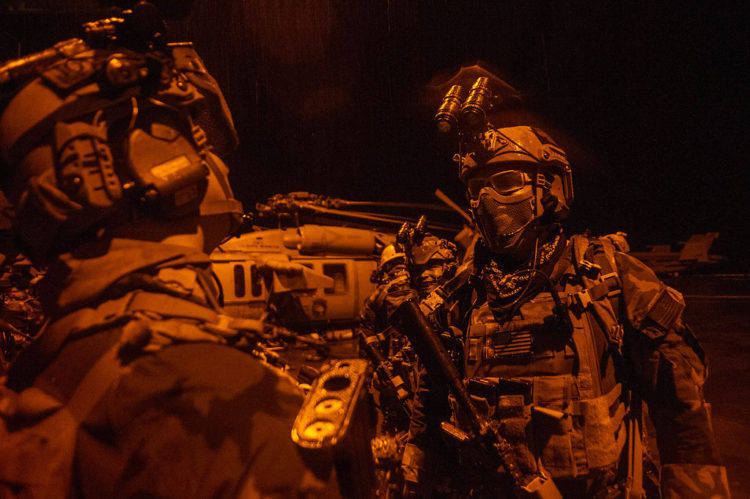For decades, earning your way onto an elite special operations unit has largely been about your performance on aptitude tests and during physically challenging assessments, but in the very near future, the Marine Corps’ special operations unit known as the Raiders, or MARSOC, may be looking to computers to help identify the best candidates.
MARSOC is currently experimenting with the idea that machine learning could be used to identify and track factors that lead to success for MARSOC applicants. By first identifying the unique traits that seem to make up the most ideally suited operator, the same practice could be employed on incoming classes — sifting through Marines that don’t possess the best traits for an operator and identifying those that are particularly well suited for the rigors of the special operations community.
Over this past summer, SOCOM officials began collecting and assessing a wide range of data points recorded during the selection process for the Marine Corps Forces Special Operations Command.
“It’s really going to be our first experiment. It’s exciting,” said David Spirk, SOCOM’s chief data officer. According to Spirk, the data collected pertains to every aspect of a potential operator with the exception of information that’s protected by the privacy act. Spirk went on to say that the U.S. Army Special Operations Command is also exploring a similar approach.
“Outside of that, we want the machine to do the regression backward for us, and so it might pick up something extremely unique — that we didn’t realize every Marine Raider is from Arkansas,” he said. “What it would allow us to do is allow the machine to say, this is actually the series of things, that, when they come together, make this Marine Raider who made it all the way through successful.”
The idea wouldn’t necessarily be to use artificial intelligence to disqualify potential candidates, but rather as a special operations recruitment tool. Once the algorithm develops a mature model of what the ideal traits for a special operations are, it could feasibly scour Marine Corps personnel records for the best possible candidates and flag them for recruiter engagement.
“Using a machine to [predict success], rather than us showing up at a gym with a bunch of pamphlets and saying, ‘Who wants to be a Raider today’ — I think we can get a lot more efficient,” Spirk told Military.com.
Recruiting for special operations units has long been a challenge, thanks largely to the high attrition rates of candidates working through selection. By identifying the Marines that are most likely to succeed, MARSOC could feasibly lower attrition rates without lowering the command’s standards, thanks to seeking out the best possible candidates before the first day of training even begins.
“If I can bring more people in who are likely to pass the assessment and selection process, I don’t have to generate the level of individuals to go through training, so every time we take a turn, we save money by using these technologies,” he said.
Already have an account? Sign In
Two ways to continue to read this article.
Subscribe
$1.99
every 4 weeks
- Unlimited access to all articles
- Support independent journalism
- Ad-free reading experience
Subscribe Now
Recurring Monthly. Cancel Anytime.











COMMENTS